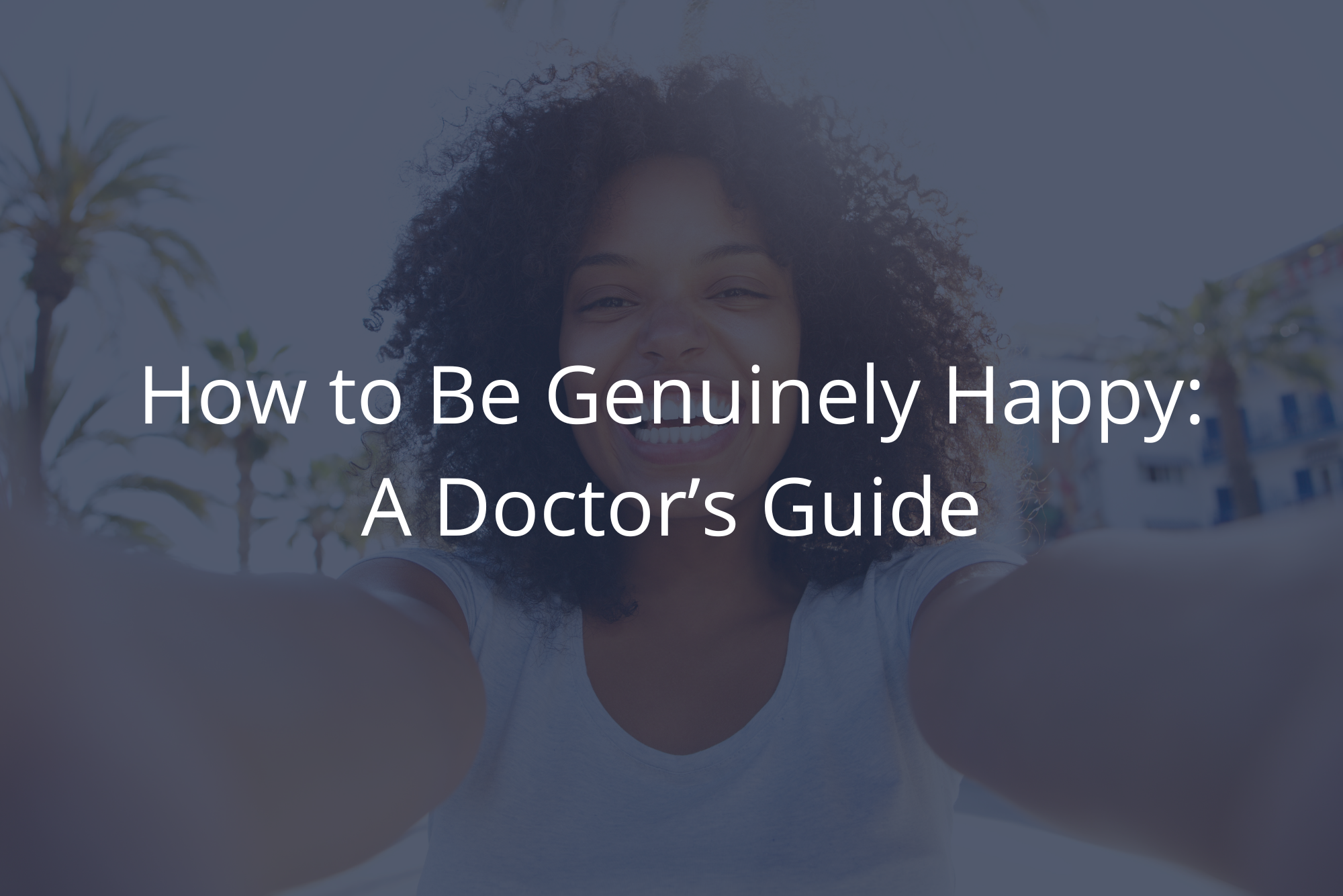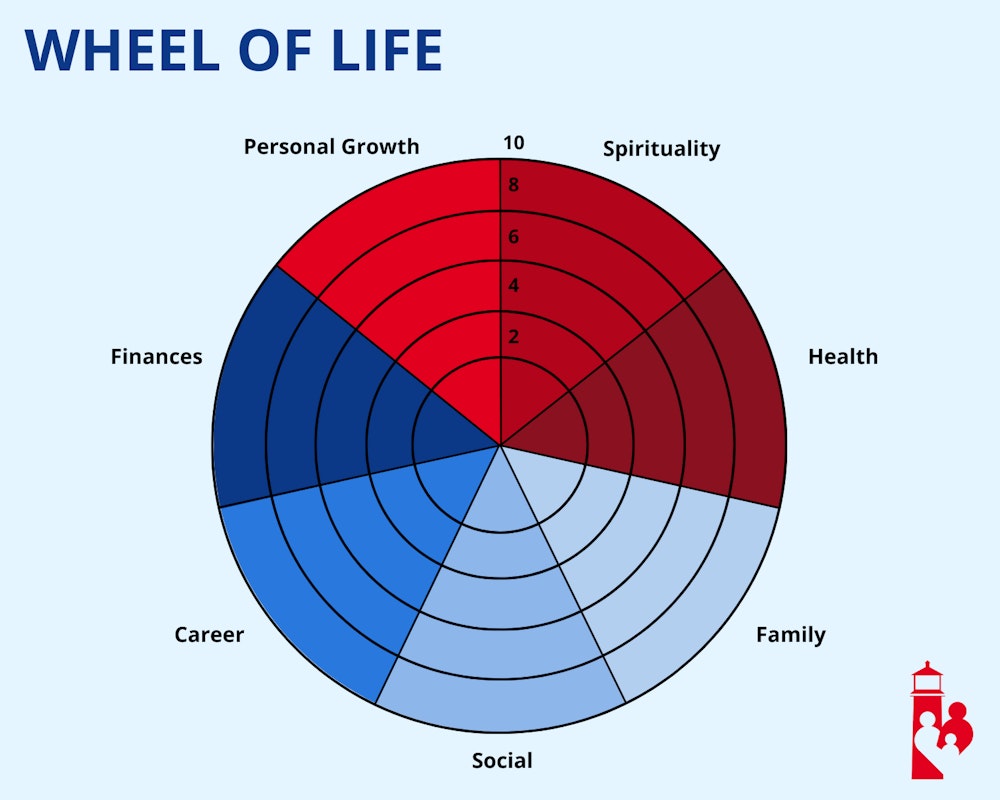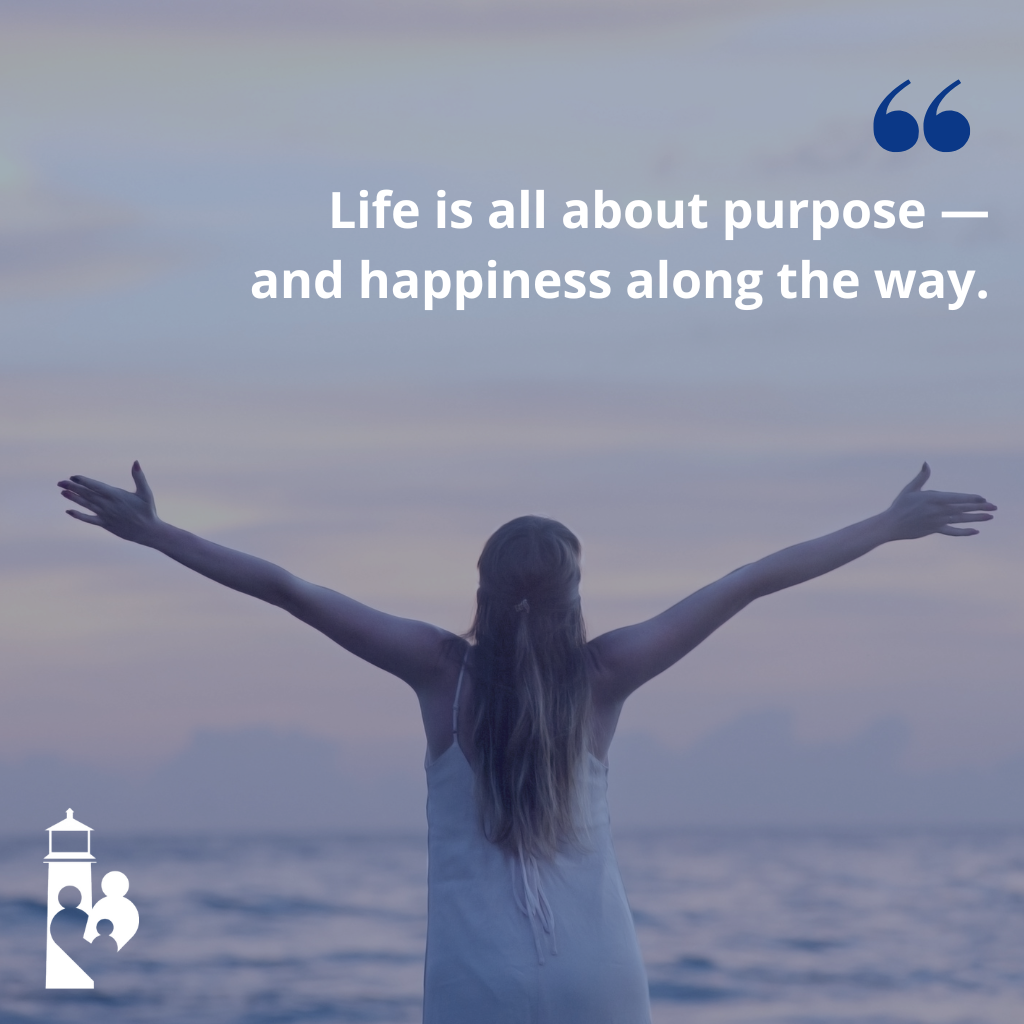
It’s no exaggeration to state that stress levels are at unprecedented heights.
When it comes to stress and health, I take a slightly different tack than the oft-used thought of “managing” your stress. We don’t need to waste our lives managing stress. We need to practice eliminating it.
That’s why the four pillars of health make SENSE: Sleep, Exercise, Nutrition, and Stress Elimination.
So many people want to know how to be genuinely happy. The good news is, happy people are excellent at eliminating stress from their lives, both acutely and over the long haul. The even better news is that happiness — genuine happiness — is a something that can be taught, learned, and achieved (barring underlying mental illness).
I want to share with you what I’ve learned over the past 30 years of studying happiness.
Action and Emotion
Life is all about purpose — and happiness along the way. Another way to look at this is action and emotion, one following the other in a cause-and-effect relationship. Once you identify that this relationship exists, you can better find balance, identifying actions that lead to emotions you’re after.
To find the most effective places to put your attention and efforts, I recommend using the following tool.
The Wheel of Life
I’ve run into a tool called “The Wheel of Life” many times and in many places. The wheel provides a useful means of assessing the major areas of your life and identifying any that require attention.
The sections of the wheel are divided into seven areas:
- Personal Growth
- Spirituality
- Health
- Family
- Social
- Career
- Finances

To take advantage of the wheel, simply assess yourself in each area on a scale from one to 10. Take honest stock of how you feel your life measures up to your ideals.
Remember, it’s not a test. No one sees the results but you.
When you evaluate your scores, you’re not simply looking for high marks. You’re looking for balance.
A wheel only works when it’s balanced, when all segments are round and full. This is the brilliance of the Wheel of Life. You don’t need to hit a 10 in every area to achieve happiness. A happy person may sit at seven out of 10 in each slice — a perfectly healthy number, and one that’s in balance across their life.
Or, maybe you give yourself an eight out of 10 on career, but a six out of 10 on family and a four on health. You now have an easy-to-read map spotlighting certain imbalances in your life. And now that you can see what’s lacking, you can do something about it.
Move Toward Wholeness
Areas of deficiency on the wheel need your attention. Robust care in these areas will round the circle out, bringing balance to the whole. In order to make real, lasting changes, follow these simple suggestions:
- Don’t multitask
- Pick one area to improve at a time
- Set a small goal
- Work toward that goal
Human beings don’t do well with fragmented attention. Multitasking, as much as we talk about it, is something of a lie. It’s certainly not a useful tool in learning how to be genuinely happy.
If you identify multiple areas for improvement, resist the temptation to jump into all of them at once. Instead, focus on one area with one specific goal at a time, moving on to another only after you’ve made progress.
By keeping things small and focused, you avoid overwhelm and allow yourself to dedicate your attention in one direction. As you establish a new equilibrium, the greater sense of balance in your life results in increased happiness.
Bonus: A Happiness Accelerator
There are no true shortcuts to genuine happiness, but some actions and activities have greater impact than others. Aside from the self-development you put into the Wheel of Life, a powerful way to cultivate happiness is to lift up others.
This may sound trite or hokey, but taking your eyes off yourself and setting them on others for their good is an absolute happiness accelerator. Whether that means getting involved with a charity, volunteering, helping a friend or loved one, or something else, don’t underestimate the happiness benefit of helping others.
That said, even this must take place in balance. All the areas on the Wheel of Life work together to support altruistic endeavors. If you neglect any one of them, you set yourself on an unhealthy path.
In summary: As long as you’re not neglecting yourself or the crucial areas of your life in the process, one of the quickest ways to be happier is to think of others more and yourself less.

Dr. David Rosenberg
Dr. Rosenberg is a board-certified Family Physician. He received his medical degree from the University of Miami in 1988 and completed his residency in Family Medicine at The Washington Hospital in Washington, Pennsylvania in 1991. After practicing Emergency Medicine at Palm Beach Gardens Medical Center for two years, he started private practice in Jupiter, in 1993. He is an avid baseball fan and Beatles fanatic, since he was 8 years old. He has been married to his wife, Mary, since 1985 and has three grown children.
David completed additional studies at Mercer University, Macon, Georgia and obtained a BS in Chemistry in 1983.
“My interests include tennis, snow skiing, Pilates and self-development.”

